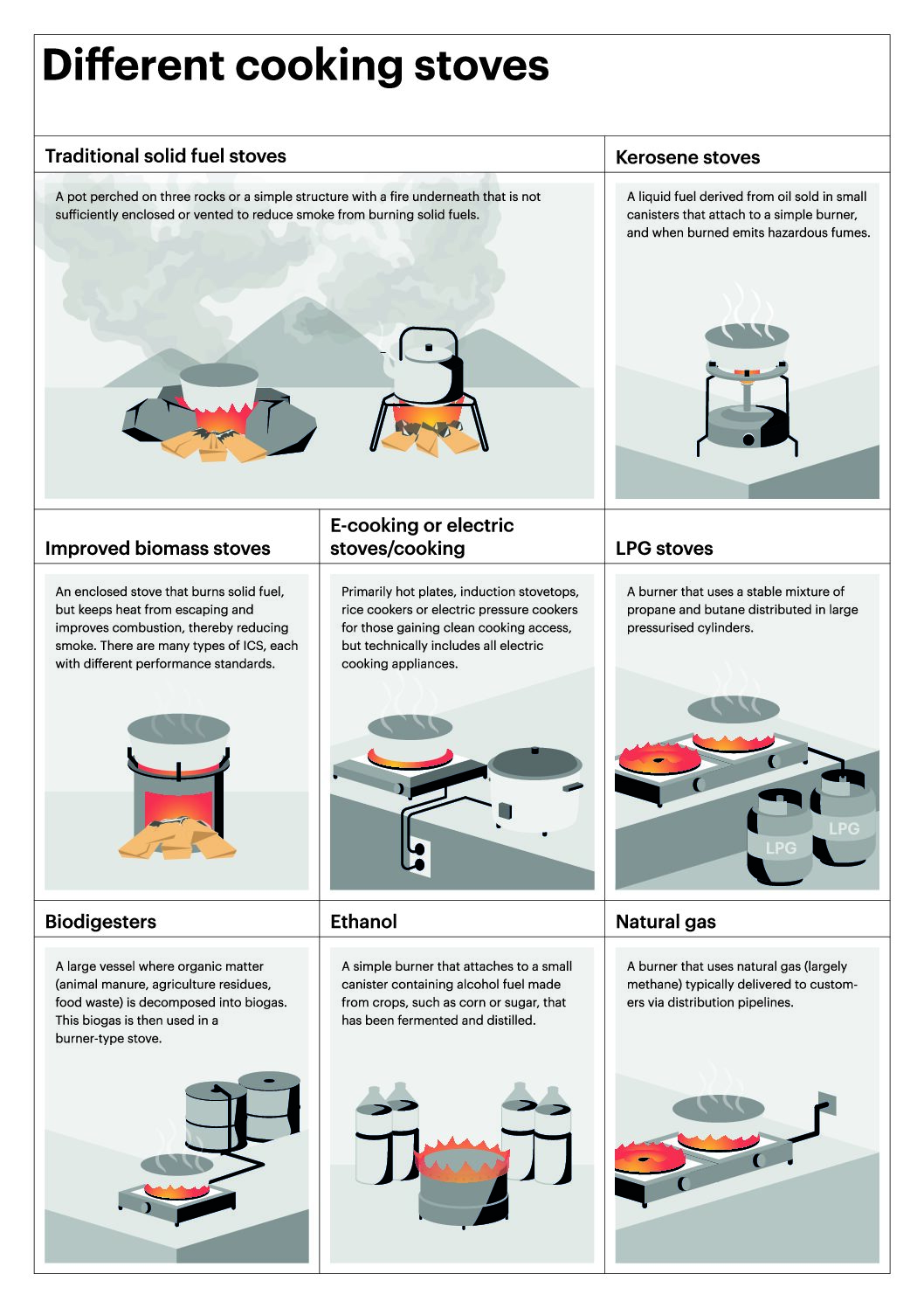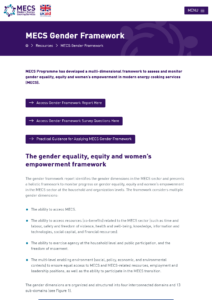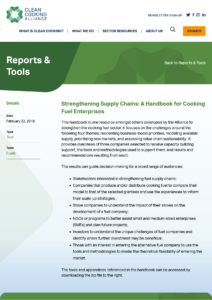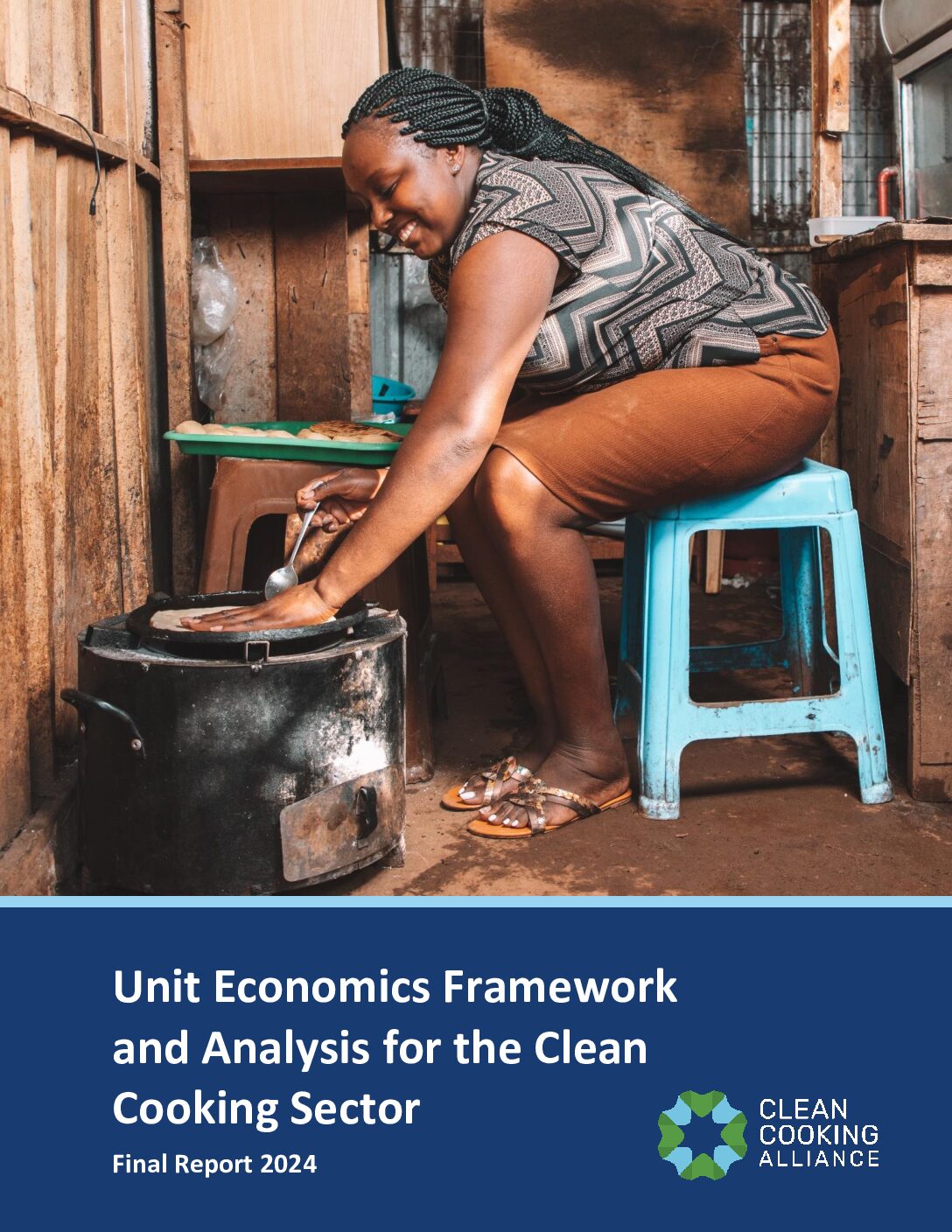This is an article by a company that offers solutions to offset the emissions generated by online shopping. It provides a quick and basic guide for companies on how to start generating and selling carbon credits.
This IEA infographic gives a quick overview of different cooking technologies, and outlines each technology’s advantages and disadvantages in terms of health, gender and environmental impacts, as well as costs, scalability and efficiency.
This chapter of the SDG 7 progress report describes progress made towards the goal of access to clean cooking for all.
This page presents the Principles for Responsible Carbon Finance in Clean Cooking, developed by the CCA.
This report provides background information and guidance on the types of behavioural changes needed to advance access to clean cooking, and ways to promote these changes.
This study investigated (1) What marketing messages are effective at increasing willingness to pay for a more efficient stove in rural Uganda; (2) What sales offers (e.g., free trial and time payments) increases willingness to pay and uptake; (3) What effects does ownership of an efficient stove have on the use of old and new […]
This page presents all relevant materials for the adoption of a multi-dimensional framework to assess and monitor gender equality, equity and women’s empowerment in modern energy cooking services (MECS).
This handbook focuses on the following supply chain challenges in clean cooking: reorienting business model priorities, modeling available supply, prioritizing new markets, and assessing value chain sustainability.
This report highlights evdience on key unit economics drivers for clean cooking, with the aim to better articulate the value of clean cooking, reduce transaction costs, support actors across the ecosystem to capitalize on commercial and impact opportunities, and ultimately unlock more investment capital for the sector.
This document introduces measurement, reporting, and verification (MRV) approaches and recommendations as they apply to cooking energy interventions. It is intended for any professional involved in the planning, execution, or funding of clean cooking energy programs and projects that aim to reduce climate-harming emissions.





